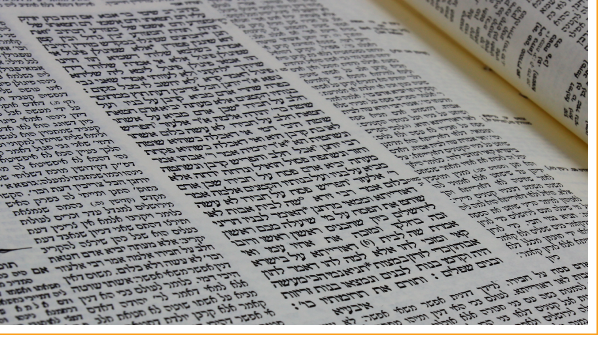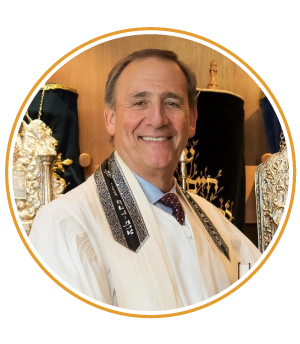 One of the few laws of science that I remember from elementary school is: “Nature abhors a vacuum.” Granted, one might well think, not a very useful bit of information for a rabbi, but one could not be further from the truth. Rabbis, too, abhor vacuums and, like nature, will often attempt to fill that vacuum- the absence of understanding- with a multi-faceted tool: PARDES.
One of the few laws of science that I remember from elementary school is: “Nature abhors a vacuum.” Granted, one might well think, not a very useful bit of information for a rabbi, but one could not be further from the truth. Rabbis, too, abhor vacuums and, like nature, will often attempt to fill that vacuum- the absence of understanding- with a multi-faceted tool: PARDES.For the rabbis of the Talmud, this Hebrew word, borrowed from the Greek, meaning “Paradise/Orchard”, became the key in unlocking multi-layered meanings within Torah. The rabbis held it to be an abbreviation for the four ways to understand Torah: Peshat: Plain Meaning, Remez: Allusion, Drash: Homiletical, Sod: Mystical.
This Torah portion, Achrei Mot, contains several verses filled with warnings to Israel against imitating unspecified negative “deeds, customs and practices” of Egypt and Canaan. Because these negative actions are not directly specified in the text, hence, (vacuum), the rabbis proceed, with numerous commentaries, to fill that vacuum.
Before proceeding further, it must be repeatedly stated: as Reform Jews, we stand, one foot firmly rooted within the Jewish world, while the other, within the larger world around us. Bearing that in mind, the following five commentaries, written by Traditional rabbis, some over 200 years ago, speak directly to us, as Liberal Jews, today. It is vital for us to remember that the beauty and power of our faith as Jews lies in the fact that all of our sacred books are open for us to read and study. Rabbinic commentaries, observations and insights are equally open for us to reflect upon, debate, accept or reject, regardless of personal degree of observance.
The key element, as well as obligation binding our generations together is that of study, discussion and more discussion.
As Rabbi Hillel said over 2,000 years ago: “…go and study.”
And for this Shabbat, fso we shall.
18:3 “After the deeds of the land of Egypt, where you dwelt, shall you not do; and after the deeds of the land of Canaan, where I bring you, shall you not do; nor shall you walk in their ordinances (Chukot).”
“This does not refer to indecent or forbidden actions- those are detailed further on. The intent here refers to permitted things and warns against imitating the manner in which Egyptians and Canaanites ate, drank and conducted themselves.”
Sefat Emet (Rabbi Yehudah Leib Alter,1847 Poland-1905 Poland)
In commenting upon the extreme that the prohibition against “Chukat HaGoy/imitating the non-Jew, has taken, an Orthodox rabbi, with a smirk on his face, once said to me: “Does that mean I can’t eat turkey on Thanksgiving because non-Jews are doing it? Not wear a tie because non-Jews wear ties? Not wearing pants because non-Jews wear pants? Of course not!”
Question:
As Liberal Jews, do we differentiate our actions in the way we eat, what we eat, how and what we drink and personal lifestyles from non-Jewish society? If so, how? If not, why not?
18:3 “The deeds of Egypt you shall not do…nor the deeds of Canaan you shall not do, nor follow their ordinances (Chukot).”
“You shall not do” is repeated twice in the verse: once, in reference to Egypt and the second, pertaining to Canaan. Egypt is referenced because Israel lived in Egypt hundreds of years and were used to Egyptian behavior. Canaan, because it’s customs would be new to the Israelites. Therefore, the warnings to Israel are twofold in nature: be wary of habit and automatic behavior and also be careful not to become enticed by something just because it is new.
Kol Omer K’ra (Rabbi Abraham Yehuda Schwartz, 1824 Slovakia-1883 Hungary)
Question:
Why might habit and automatic behavior be viewed as negative practices? What might be the latent danger from something new?
Do the warnings against habit and enticement of the new, have any bearing on your personal life style and behavior? How?
18:4 “You shall keep My statutes and my judgments, by doing so, shall live by them.”
“It is not enough to engage in Torah study or observe Mitzvot by habit or rote. There is need for innovation, fire and spiritual engagement; to be in the process of “moving” from spiritual step to spiritual step; rising to an ever higher and higher plane.”
Chatam Sofer (Rabbi Moses Schreiber, 1762 Germany-1839 Slovakia)
Question:
What types of “innovation, fire and spiritual engagement” would you suggest? How are you growing in your own spiritual journey?
18:4 אשר יעשה אתם האדם וחי בהם…״” “The person who will do them, shall live by them.”
“The letters of the word “them/אתם” can be arranged to spell out the word “truth/אמת.”
Whoever makes truth/אמת the foundation of his life, acknowledges the truth/אמת; speaks the truth/אמת in his heart and walks in the paths of truth/אמת, then he truly “lives by them/וחי בהם.”
Degel Machane Efraim (Rabbi Moshe Efraim of Sudikov, 1748 Poland-1800 Poland)
Question:
Does this interpretation and development of the word “truth” resonate within you? In what ways?
18:4 וחי בהם…״” “live by them”
“When he is filled with life/חיים and energy, in his youth; not like those people who become very observant in their old age, when the Yetzer HaRa/Evil Inclination has already left them.”
Question:
Though no specific source is given for this commentary, it’s words bring a smile to one’s lips…why?
Explain why it is more difficult to live a religious lifestyle while one is young.
How can a senior citizen truly live a religious lifestyle if the ability to sin is no longer there?
Shabbat Shalom!

The views and opinions expressed in this article are those of the author(s) and do not necessarily reflect the official policy or position of the World Union for Progressive Judaism (WUPJ).
